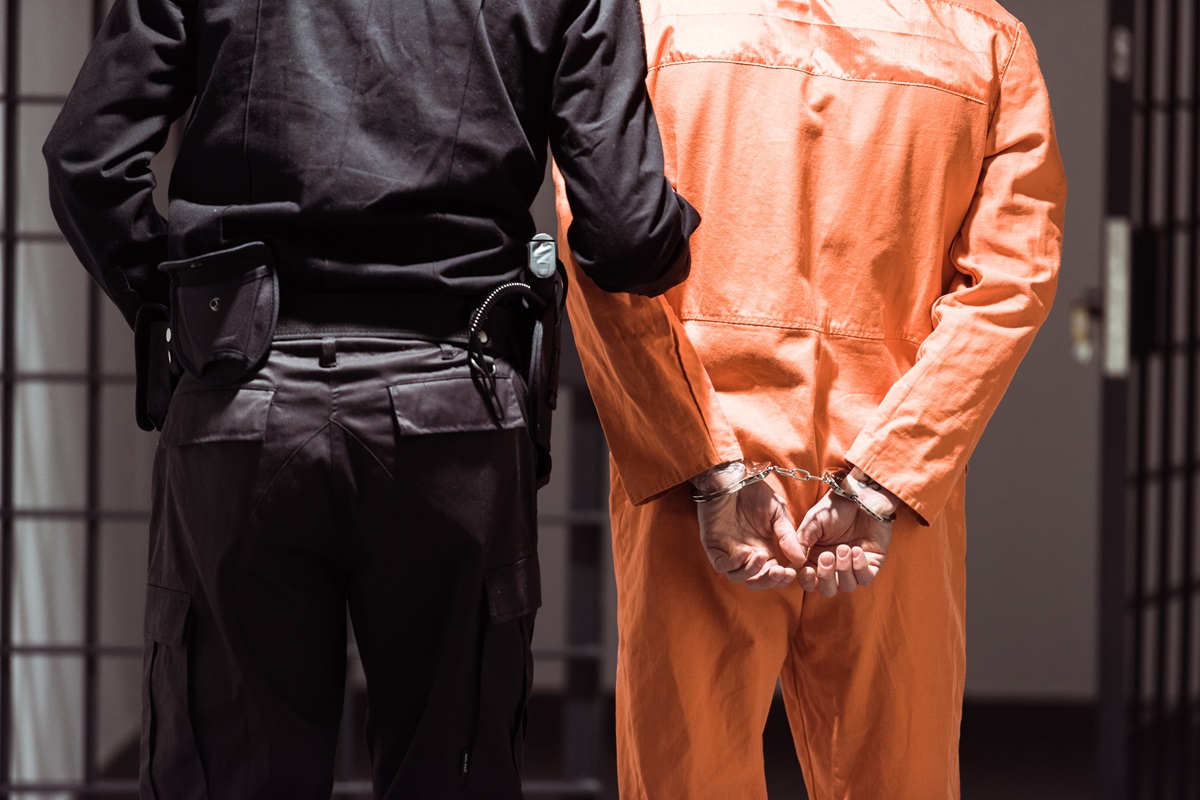Crossing state lines when facing charges might seem like an escape plan, but extradition can quickly bring a person back to face the law. Navigating the complex legal process with a crime lawyer is vital for effectively facing such a situation. They protect your rights and provide critical defense against charges from another jurisdiction.
This article explores the intricacies of extradition in Texas, detailing the process when another state requests an individual’s transfer. An experienced attorney can safeguard you from prosecution using a solid defense strategy.


A Crime Attorney Safeguards Your Rights
Facing extradition can feel like the end of the road, but with solid legal representation, you still have a fighting chance. A skilled criminal defense attorney advocates for you and protects your rights from the outset. They explain the legal complexities and develop a tailored defense strategy.
Lawyers meticulously examine the extradition request, including the arrest warrant’s validity and evidence presented. They identify potential legal defenses such as jurisdictional challenges or constitutional rights violations. In some cases, securing a bond might be an option to allow you to remain undetained while the process unfolds.
Beyond legal tactics, a dedicated attorney offers emotional support and clear communication to help you feel more secure. You have a more substantial chance of achieving a favorable outcome with the proper legal counsel.
Understanding Extradition Between States
It is the legal process of transferring an accused or convicted individual from one jurisdiction to another for trial or punishment. Interstate extradition transfers an individual between U.S. states, while international extradition involves different countries and is governed by treaties.
State-By-State Process
The Uniform Criminal Extradition Act (UCEA) governs Texas’ extradition process and standardizes procedures across participating states to ensure fairness and protect individual rights. Under this act, extradition can occur under several circumstances, including the issuance of:
- A Governor’s warrant: This involves the requesting state submitting a requisition to the Governor of Texas, who then issues a warrant for the individual’s arrest.
- A Magistrate’s warrant: Issued based on probable cause, this can be used when immediate action is necessary.
- An arrest without any prior warrant: Law enforcement can arrest a person without a warrant if they reasonably believe the individual is a fugitive from justice.
Extradition is a cooperative process between jurisdictions. Asylum states, or where the individual is currently found, must balance protecting their residents with honoring the requesting states. The goal is to uphold justice while safeguarding the accused’s rights. Additionally, it’s important to remember that this process is typically limited to specific, serious charges.
Scope & Limits
Extradition is not automatic for all crimes and is generally for severe cases such as treason, felonies, or other significant crimes. This includes violent offenses like murder and assault, as well as non-violent but severe charges like embezzlement or fraud.
Some offenses, however, are less likely to prompt extradition due to several factors. Each jurisdiction weighs the crime’s severity against the potential costs and resources before deciding whether to pursue it. The process demands careful attention to specific legal requirements and procedures to ensure its proper application.
Interstate Extradition Process
Extraditing an individual in Texas who is wanted in another state follows several vital steps. These ensure the process respects the accused’s rights while fulfilling the requesting state’s demand for justice. Here’s a breakdown of the stages involved.
Issuance Of A Warrant
Law enforcement in the requesting state initiates the process by obtaining an arrest warrant for the suspect. Once the warrant is issued, a formal request is prepared and submitted to the Governor of Texas. This request includes supporting documentation, such as the indictment or affidavit detailing the crime.
Upon receiving the request, the Governor can deny or approve it based on legal and factual considerations. A warrant is issued for the suspect’s arrest in Texas if approved.
Arrest & Initial Appearance
With a warrant, law enforcement can apprehend the accused and bring them before a Texas court for an initial appearance. At this hearing, the person subject to extradition is informed of the charges against them and their constitutional rights.
They can either waive or challenge it through a hearing. By waiving, they voluntarily agree to be transported to the requesting state without undergoing the process. Alternatively, a formal hearing is conducted if they contest the extradition.
Extradition Hearing
The hearing is crucial as it assesses the validity of the request rather than the accused’s guilt or innocence. The requesting state must prove the individual’s identity and the crime alleged. Meanwhile, the accused can challenge the extradition by presenting evidence or arguments through legal counsel.
Decision & Appeal
After the hearing, the court decides whether to approve or deny the request. If the decision favors extradition, the suspect is handed over to the authorities of the requesting state. However, this decision can be appealed, adding a layer of legal scrutiny and ensuring that all aspects of the case are considered thoroughly.
Each step of the process is crafted to balance the requesting state’s legal requirements with the accused’s rights. They underscore the importance of having skilled legal representation to ensure a fair and just procedure.
A Criminal Law Attorney Employs Legal Defenses
Extradition can be difficult to contest, but no case is a lost cause. A skilled criminal defense attorney will vigorously uphold your rights if you intend to fight. They employ various legal strategies to challenge the request, potentially preventing your surrender to the requesting state.
Challenge Extradition Documents
A lawyer thoroughly reviews the documents submitted with the extradition demand. They may argue that the requesting state provided incomplete or incorrect documentation or failed to follow proper legal procedures. Although such issues are rare, they can significantly disrupt the process and may result in the dismissal of the request.
Confirm Criminal Charges
Another key defense involves confirming that the requesting state has legitimately charged you with a crime. A skilled attorney explores the case specifics to ensure that formal charges exist and align with the allegations. If discrepancies arise, such as the lack of formal charges, this can serve as a solid basis to challenge the extradition.
Question The Identity
A lawyer can challenge the identity of the person named in the extradition request. They can argue that the authorities have detained the wrong individual by presenting evidence such as fingerprints or photographs. If they create enough doubt about the identity, the court may halt the process until they confirm the correct individual.
Argue Insufficient Evidence
The requesting state must provide enough evidence to show probable cause for the crime. If the evidence is weak or inconclusive, a lawyer can challenge its adequacy. They will identify gaps, inconsistencies, or flaws in the evidence and argue that it does not meet the legal standard required for extradition.
Risk Of Unfair Trial
You can oppose extradition if there’s a significant risk of an unfair trial in the requesting state. An attorney can raise grounds for denial by showing evidence of potential issues. This can include a lack of legal protections, a likelihood of undue influence, or excessive punishment.
A skilled crime lawyer can build a solid case based on the facts of your circumstances. By challenging the request on multiple grounds, they strive to prevent your unjust transfer and defend your freedom.
The Medlin Law Firm Protects Your Freedom


With a proven track record in defending clients facing a wide range of criminal charges, The Medlin Law Firm is your steadfast advocate. Our team brings extensive experience to defending clients in criminal cases, including those at the federal level. Whether you’re facing serious charges or navigating complex legal situations, we apply deep criminal law knowledge to build a strong, tailored defense.
We take a proactive approach, examining every detail to identify the best legal strategies. From misdemeanors to serious felonies, we approach every case with meticulous attention to detail. Our criminal defense lawyers carefully analyze the evidence, identify weaknesses in the prosecution’s case, and build a defense strategy to protect your rights.
Our team understands the severe impact of criminal charges on your life. That’s why we provide compassionate and effective legal representation. When your future is at stake, trust The Medlin Law Firm to fight for you. By choosing us, you’re not just hiring a legal team; you’re gaining a dedicated partner who is committed to fighting for your rights and freedom.
Summary
Extradition in Texas involves a legal process where an individual is transferred from one jurisdiction to another to face charges. This includes several steps, from issuing an arrest warrant to the court’s final decision. A skilled crime attorney protects your interests by challenging extradition on various grounds to provide a robust defense.
With extensive experience and a compassionate approach to criminal defense, The Medlin Law Firm provides valuable support for complex legal situations. Visit or call our Fort Worth and Dallas offices to start protecting your freedom.
Similar Posts by The Author:
Publicaciones Similares del Autor:
(682) 204-4066 We cannot receive pictures via text so please send those via email or hand deliver to our office.





